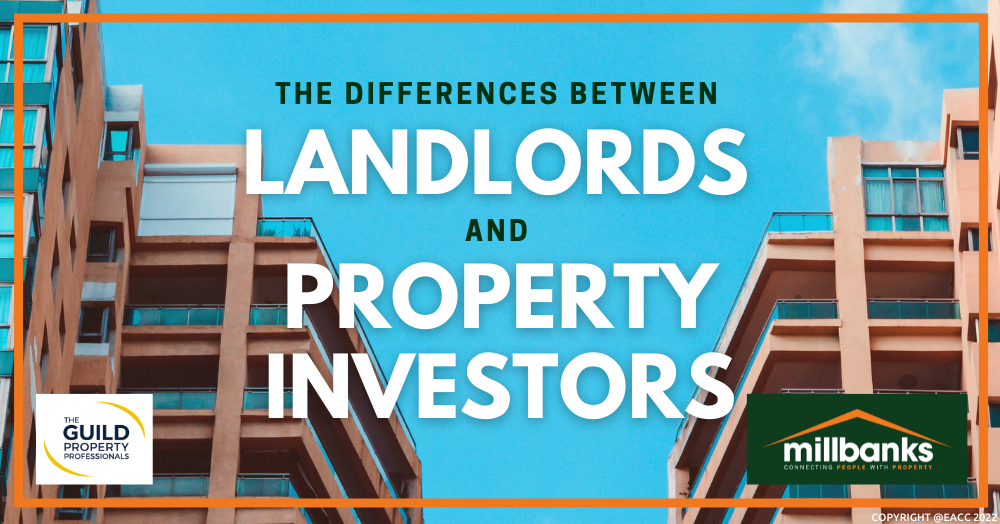In this two-minute read, we look at the differences between landlords and property investors.
What’s the difference between a landlord and a property investor? Aren’t they the same thing? Does one rent out properties and the other sell them on? If these questions have got you scratching your head, read on.
Long term vs short term
Keeping it simple, a landlord makes a regular income from renting properties to tenants. They are responsible for maintenance and managing the property. It’s also likely that they hold onto the property for the long term.
A property investor is trickier to define. It might be someone who buys buildings they can add value to before selling on, or someone that invests in other people’s property ventures, not getting involved in the actual build or refurb.
Hands-on vs hands-off
A private landlord has got a lot to do. Once they’ve bought, financed, and refurbished their rental property, they enter the wonderful world of lettings. And while many landlords use our agency to find tenants and manage their property (the easiest decision in our humble opinion), many choose a more hands-on approach. So, they manage the property, taking care of tenant enquiries, emergencies, or repairs.
Being a landlord can be a full-time job, depending on the number of properties and tenants they may have.
A property investor takes more of a back-seat role. For example, they may be part of a joint venture or involved in an equity partner agreement. This is where they put up the capital and other parties do the work.
Property investors with access to a large amount of money may take more indirect routes to their investments such as property funds or trusts, buying shares in large development companies or property ISAs. In each instance, they commit their cash, rather than their time.
Regular income vs one-off payments
A private landlord looks for a good rental yield as a stable and relatively low-risk property investment. They receive monthly rental payments that should cover mortgage costs and could (hopefully) supplement their income. Over time, if they sell their rental property, they may also benefit from price appreciation. Nowadays, many private landlords regard property as an alternative to a traditional pension.
Property investors buying buildings to ‘flip’ or develop look for a one-time payoff once they’ve sold the property.
If you’re interested in becoming a landlord or making a property investment, give us a call on (01953) 453838 or drop us an e-mail to lettings@millbanks.com

